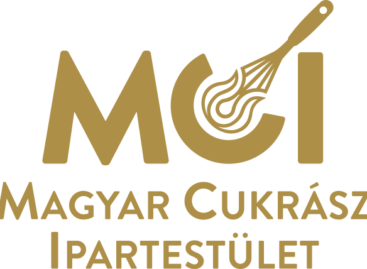The art of persuasion
At this year’s Inno d’Or conference, persuasion and influence technique expert Dr László Újszászi-Bogár was the keynote speaker.
This article is available for reading in Trade magazin 2023/6-7.

Dr. László Újszászi-
Bogár
persuasion and influence technique expert
He revealed that 90% of our decisions aren’t conscious but emotion-based, and we only start to rationalise them afterwards.
Pain, joy and “fair calculation”
When we look at a price or spend money, the part of the brain that is responsible for feeling pain is activated, and when we get something we want, it is the happiness section that is turned on. What the brain does is so-called “fair calculation”, which means that subconsciously it calculates how big the pain will be if we spend that money or how happy we will feel when the product or service is finally ours. If the happiness isn’t minimum 2.6 times bigger than the pain, the purchase doesn’t take place, because neurologically our brain is wired to avoid loss – losing something hurts more than getting something. Those who wish to sell a product or service need to modify this “fair calculation” in shoppers, for which they can use persuasion techniques. It is also very important not to overdo persuasion, as it only increases the sympathy level up to 3 arguments, and at the 4th this level stalls before it plunges from the 5th.
How can touching and smelling influence “fair calculation”?
There are innumerable influence techniques that focus on our subconscious. Research has found: if we use communication tools that make the hypothalamus of consumers produce oxytocin, they will begin to trust us and our product more. As part of an experiment, an audience was listening to a speaker, and those members of the audience who held a mug of hot drink in their hands rated the speaker 3 points higher. In another experiment feminine and masculine fragrances were tested on rough and smooth paper. The result was that participants appreciated masculine fragrances on rough and feminine fragrances on smooth paper more.
Words, colours and a distorted perception of reality
Words can also be used to influence how people perceive reality. There was an experiment where different information labels were placed in front of two trays of the same type of sandwich: one label said the sandwiches were 25% low fat, and the other claimed they had 75% fat. From the participants of the experiment, 42% said their tastes were really different. Colours also have an impact on what we think about a product. Participants of an experiment received grip strengtheners in different colours, and it was observed that the colour red made users put more effort into using the device. What is more, the sympathy index also increased while using the red gripper. In a shopping centre, customers spent 56 minutes with shopping if slow background music was playing, and they finished the shopping in 45 minutes when fast music was on; what is more, those who listened to slow music spent 29% more money.

Foods in matt packaging are perceived as healthier and more natural, while those in glossy packaging are perceived as more fatty. Still, consumers prefer to eat food in glossy packaging
The relationship between smell and memory
In an experiment certain participants had plain pencils, but the others were given tea tree oil scented pencils. Two weeks later those who used normal pencils could remember 73% less information, while the participants with the special smelling pencil only forgot 8% of the information. This showed that people remember those pieces of information much more which were conditioned with some kind of scent. Dr Újszászi-Bogár told at the end of his presentation: whatever we do, we communicate with it – also making an impact on the subconscious of the other person. If this is the case, let’s try to do this more consciously, analysing from an ethical perspective not to the persuasion technique, but the goal we want to achieve. //
Related news
Innovation Day for the fourth time this year
This year’s Innovation Day event and the awards ceremony of…
Read more >Védjegyes termékein keresztül is eléri a fogyasztókat a Pécsi Sörfőzde
A Pécsi Sörfőzde 175 éve van jelen a hazai sörgyártásban. A…
Read more >Introducing the members of the presidency – Part 1
This article is available for reading in Trade magazin 2023/6-7.…
Read more >Related news
The Joy of Giving! – SPAR stores collect non-perishable food for people in need
The Hungarian Maltese Charity Service and SPAR Hungary have launched…
Read more >Technological advancements and business travel
The latest research from International Workplace Group (IWG), the leading…
Read more >K&H: a gift, but what and from which store?
When it comes to Christmas gift-giving, clothes are the most…
Read more >








